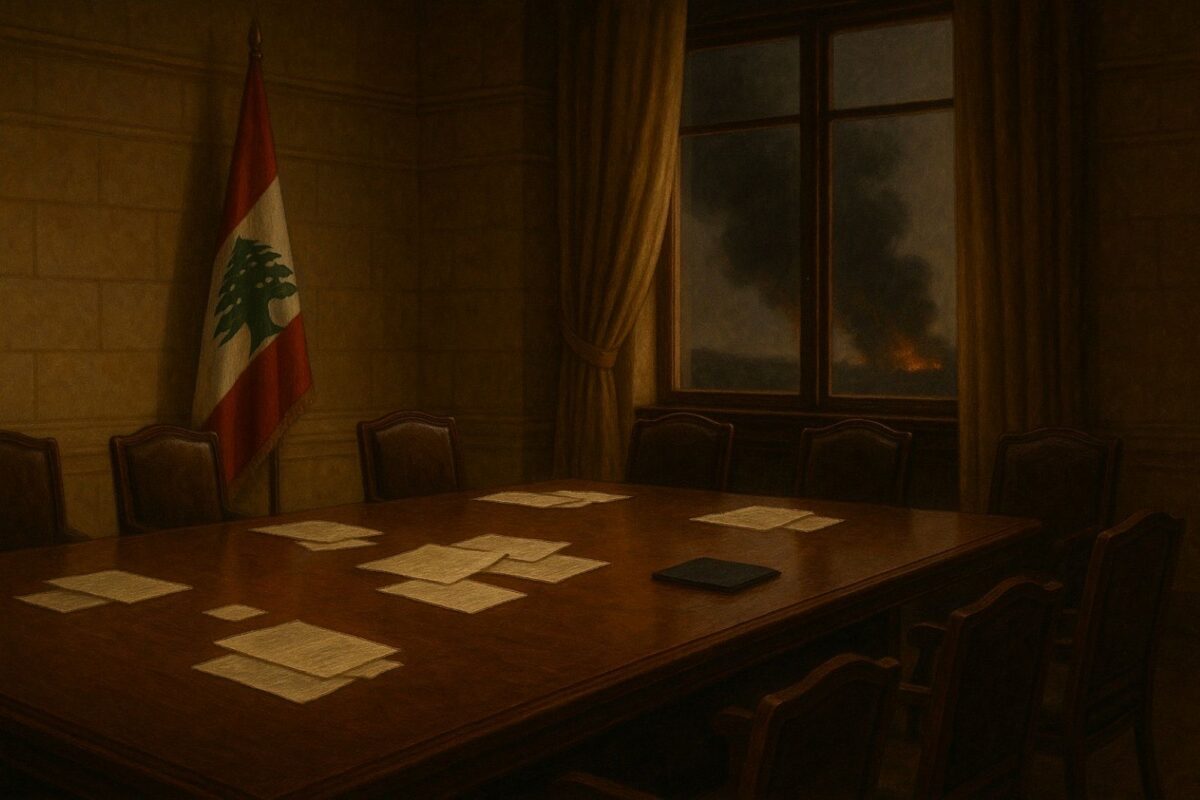
Driving the news:
Lebanon’s cabinet convened Thursday under President Joseph Aoun and Prime Minister Nawaf Salam to review the army’s report on the second phase of the plan to impose exclusive state control over weapons in the south. What should have been a sober security assessment quickly turned into a political retreat.
Why it matters:
Army Commander Gen. Rodolphe Heikal warned that completing the disarmament plan had become “operationally impossible” amid ongoing Israeli airstrikes and cross-border incursions. Yet his report revealed more than logistical challenges — it exposed the paralysis of a government unwilling to confront Hezbollah’s veto over national defense and sovereignty.
Zoom in:
Heikal cited Israeli strikes on Kfardounine, Kouthariyat al-Siyad, and Kfarsir, and noted direct threats to the army’s Nabatieh command post. Despite the escalating danger, he emphasized that no withdrawal orders were issued. His recommendation to freeze the plan pending Israeli restraint was met with cabinet chaos — not because ministers disagreed on security grounds, but because the proposal implicitly acknowledged the government’s lack of authority to enforce its own policy without Hezbollah’s consent.
Between the lines:
The cabinet also debated Hezbollah’s latest open letter rejecting any state monopoly on arms. Ministers from the Lebanese Forces demanded a formal response, but President Aoun deflected, dismissing the letter’s “political tone” and calling for restraint. In effect, the state treated a direct challenge to its sovereignty as political noise — underscoring how deeply Hezbollah’s shadow governs institutional behavior.
The bottom line:
Rather than asserting control, Beirut’s leadership has normalized its own impotence. The government speaks the language of legality while outsourcing security to an armed faction that decides when Lebanon fights, negotiates, or pauses.
What’s next:
If the cabinet accepts Heikal’s freeze proposal, the disarmament plan will die quietly — suspended until Israel withdraws, Hezbollah approves, or the illusion of sovereignty can be staged again. Until then, Lebanon remains a state defending its borders in theory, and its subordination in practice.







